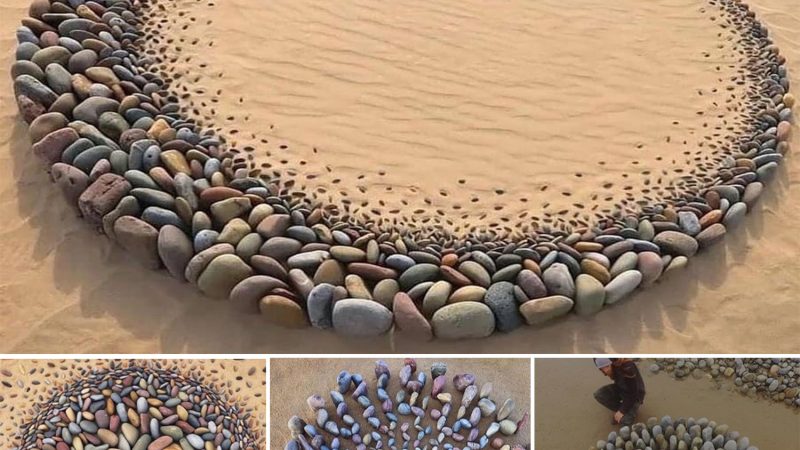Tourists in New Zealand are stunned by a huge squid that is 13 feet long
Image © Anton Donaldson / Farewell Spit Tours
“For most people it’s a once-in-a-lifetime opportunity,” tour guide Anton Donaldson told The New Zealand Heraldm>. “It’s not a common find on any beach so if you’re able to be there at the right time, because things that wash up on the beach, organic material doesn’t last on the beach.”
“The tentacles on it were chewed back. It looked like they had been chewed back by some other sea creatures such as small sharks or fish. While I don’t know for sure, I imagine it had been floating out there for a period of time and had washed up,” he added
Image © Anton Donaldson / Farewell Spit Tours
Although the giant squid is a rare find, it’s not the first time that guides with Farewell Spit Tours have come across these colossal animals. Over the three decades that the company has been conducting tours on the biodiverse stretch of protected land in the north of South Island they have encountered around six giant squid carcasses.
Giant squid are secretive deep-sea creatures that typically live between 300 and 1000 metres (980–3,280 feet) below the surface of the ocean. Occasionally, for reasons not fully understood, these behemoths will turn up on shore. A seven-metre (23-feet) squid was found on a beach in the New Zealand town of Kaikoura back in 2015 and just last month a washed-up youngster was found on the shore near Cape Town in South Africa. Researchers believe that these wash-ups may have something to do with a behavioural display called diurnal vertical migration where deep-sea organisms move up to the surface at night to feed and then return to deep waters during daylight
Farewell Spit Tours contacted New Zealand’s Department of Conservation regarding the squid carcass, and the agency will likely make an effort to collect the remains for study.

Hits: 0









